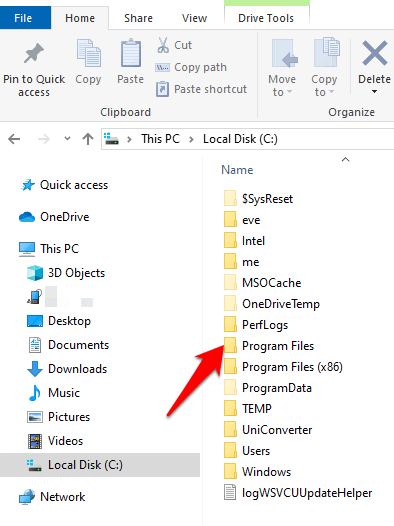
#Multiledger store path on windows password#
Though the most common case is storing a single password per entry, some power users find they would like to store more than just their password inside the password store, and additionally store answers to secret questions, website URLs, and other sensitive information or metadata. The password store does not impose any particular schema or type of organization of your data, as it is simply a flat text file, which can contain arbitrary data. Data Organization Usernames, Passwords, PINs, Websites, Metadata, et cetera You may browse the git repository or clone the repo:Īll releases are tagged, and the tags are signed with 0xA5DE03AE.
#Multiledger store path on windows install#
The tarball contains a generic makefile, for which a simple sudo make install should do the trick. The password store is available through the Homebrew package manager: $ brew install pass FreeBSD # pkg install password-store Tarball Ubuntu / Debian $ sudo apt-get install pass Fedora / RHEL $ sudo yum install pass openSUSE $ sudo zypper in password-store Gentoo # emerge -av pass Arch $ pacman -S pass Macintosh There is a more detailed initialization example in the man page. If a git repository is initialized, pass creates a git commit each time the password store is manipulated. Initialized empty Git repository in ~ $ pass git remote add origin :pass-store We can additionally initialize the password store as a git repository: ~ $ pass git init Multiple GPG keys can be specified, for using pass in a team setting, and different folders can have different GPG keys, by using -p. You can use your standard GPG key or use an alternative one especially for the password store as shown above. Here, ZX2C4 Password Storage Key is the ID of my GPG key.

Password store initialized for ZX2C4 Password Storage Key. Mkdir: created directory ‘/home/zx2c4/.password-store’ To begin, there is a single command to initialize the password store: ~ $ pass init "ZX2C4 Password Storage Key" You can read more examples and more features in the man page. If the password store is a git repository, since each manipulation creates a git commit, you can synchronize the password store using pass git push and pass git pull, which call git-push or git-pull on the store. Removed ‘/home/zx2c4/.password-store/Business/cheese-whiz-factory.gpg’ Rm: remove regular file ‘/home/zx2c4/.password-store/Business/cheese-whiz-factory.gpg’? y It's possible to generate passwords with no symbols using -no-symbols or -n, and we can copy it to the clipboard instead of displaying it at the console using -clip or -c.Īnd of course, passwords can be removed: ~ $ pass rm Business/cheese-whiz-factory The utility can generate new passwords using /dev/urandom internally: ~ $ pass generate Email/ 15 This also handles multiline passwords or other data with -multiline or -m, and passwords can be edited in your default text editor using pass edit pass-name. We can add existing passwords to the store with insert: ~ $ pass insert Business/cheese-whiz-factoryĮnter password for Business/cheese-whiz-factory: omg so much cheese what am i gonna do There will be a nice password input dialog using the standard gpg-agent (which can be configured to stay authenticated for several minutes), since all passwords are encrypted. Or copy them to the clipboard: ~ $ pass -c Email/Ĭopied to clipboard. We can list all the existing passwords in the store: ~ $ passĪnd we can show passwords too: ~ $ pass Email/

The pass command is extensively documented in its man page. The very active community has produced many impressive clients and GUIs for other platforms as well as extensions for pass itself. There is bash completion so that you can simply hit tab to fill in names and commands, as well as completion for zsh and fish available in the completion folder. There are no funky file formats or new paradigms to learn. You can edit the password store using ordinary unix shell commands alongside the pass command. It's capable of temporarily putting passwords on your clipboard and tracking password changes using git. It is a very short and simple shell script. All passwords live in ~/.password-store, and pass provides some nice commands for adding, editing, generating, and retrieving passwords.

Pass makes managing these individual password files extremely easy. These encrypted files may be organized into meaningful folder hierarchies, copied from computer to computer, and, in general, manipulated using standard command line file management utilities. With pass, each password lives inside of a gpg encrypted file whose filename is the title of the website or resource that requires the password. Password management should be simple and follow Unix philosophy.


 0 kommentar(er)
0 kommentar(er)
